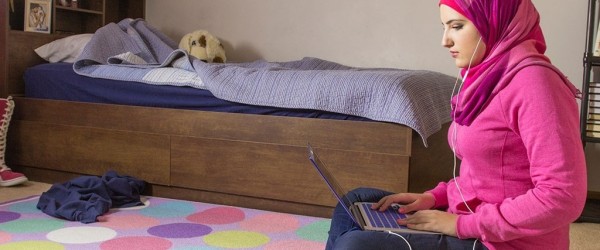When Ala’a Basatneh was recently contacted by the office of U.S. Representative Mike Quigley’s, she thought there must have been something urgent about the situation in Syria. But she was invited to attend the State of the Union address as a designated Invitee.
Violence against Muslims has skyrocketed in recent years, and especially since the Paris terror attacks. For an increasing number of hijab-wearing women, misogyny is combining with Islamophobia to especially toxic effect.
Nushin Arbabzadah writes that headscarves have been symbols of oppression, not solidarity.
Just before the holiday break, Nobel Peace Prize winner Malala Yousafzai participated in a Q&A session with her father, Ziauddin Yousafzai, from their adopted home in England following a screening of the documentary on her life, her activism, and the Taliban’s attempt to silence her in He Named Me Malala directed by Davis Guggenheim.
Kimberly Chrisman-Campbell explains Why Western Designers Are Embracing the Hijab. Dolce & Gabbana’s new collection for Muslim women, for example, combines inclusiveness with good business.
In a letter to The Indian Express, Dr. Noorjehan Safia Niaz writes about the urgency for Muslim women in India to get equal rights as citizens, and speaks about a god who is merciful and beneficent.
Ayisha Malik’s new book “Sofia Khan is Not Obliged” talks about one Muslim woman’s attempts to simultaneously navigate the dating and publishing worlds in London. After one too many frustrating attempts to justify her approach to finding love Sofia agrees to write a book about her and her friends’ experiences.
Nadiya Hussein’s win in The Great British Bake Off was widely seen as a triumph of British multiculturalism. And by regularly showing a headscarf-wearing Muslim woman outside the context of hate crimes, terrorism or politics, The Bake Off is part of a small but significant shift in how hijab-wearing women were represented on TV in 2015.

